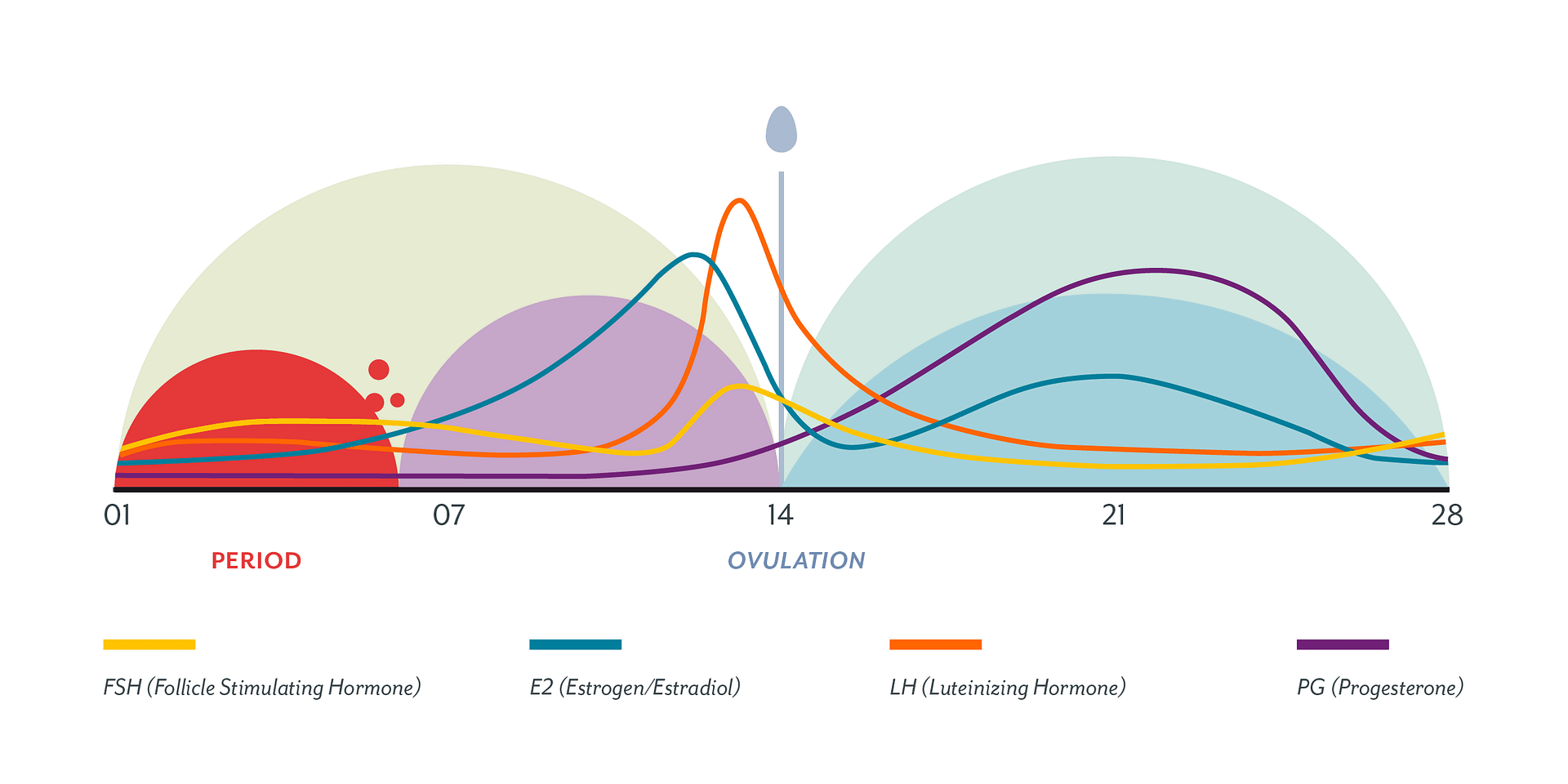You’re having a tough work day, and you’re looking forward to smashing your squat session afterwards to get some stress out. You’re more excited about adding weight to the bar at the gym than you are about anything else in your day, and you breathe a sigh of relief when your training session is finally here.

Except when you go to squat that heavy weight, everything feels awful. You feel weaker than normal, every rep is a grind, and you don’t quite hit the weight increase you thought you would.
You were so sure you had this in the bag.
What gives?
First, there are a bunch of things that could affect your day-to-day strength, like your recent sleep quality, your daily food choices, your water intake, and your stress levels.
But for us women, there’s one more major thing to consider—our menstrual cycles.
See, our hormone fluctuations at various points in our cycles can change our ability to move heavy weight.
During the follicular phase (days 1-14, beginning on day 1 of menstruation), we can train harder. Hormone levels, such as increasing estrogen levels and normalized progesterone levels, help keep our tolerance for work and progress high. You are likely to be able to work as hard as you normally can during these days.

By the time we hit ovulation, around day 14, we might be feeling really strong. This may be a good time to try using more weight than normal—with caution. Some studies have shown that women could be more prone to injury during ovulation, so any max lifting attempts should be done in good form and with solid technique.
Once the luteal phase begins, though, starting at day 15 and lasting until day 28, we can see a decline in athletic ability—we might feel like we have less energy, less endurance, less intensity, and less motivation. Estrogen is declining, and our body temps tend to run higher, making it tougher to work hard.
In the last few days of the luteal phase, these effects might be at their worst, as estrogen levels hit rock bottom. Lifting weights we normally crush can be a struggle during these days.
All this is, of course, dependent on knowing your own cycle. Your cycle might not be 28 days, and your luteal phase might not last a full two weeks. But you won’t know either of those things, nor will you be able to predict how your hormones will affect your training, if you’re not tracking your cycle.
There are lots of great apps out there for doing just this. My favorites are Clue and iPeriod. Both will allow you to track not just your cycle but your weight, symptoms, body temps, and even your moods.
Be aware, though, that your cycle might not affect your training every month. My cycle, for example, only interferes with my strength levels once every few months—and when it does, boy, is it a doozy. It’ll happen a few days before the end of my cycle, and it’ll make every single lift feel like I’ve never lifted before in my life.
I can be sure I won’t be setting any new personal bests when it happens.
But I always have my strength back by day 1 or 2 of the new cycle, and I can re-try those personal bests at any time.
Remember, too, that your cycle’s intensities are also linked to your nutrition, your sleep, your body fat levels, and your stress, so bad choices in any of those areas can intensify the ways in which your cycle affects your training.
But if you’re consistent, keep an eye on your cycle, and take care of your other needs, you can make regular progress and take advantage of the power of your changing hormones.
About the author

Kristen Perillo
Kristen Perillo is a teacher by day, trainer and nutrition coach by night. She's also a Star Wars nerd, writer, dog (and cat) mom, peanut butter junkie, and Seinfeld devotee. Fitness has done nothing but make her life better, and she is privileged to show other people that it will do the same for them.

Recent Comments